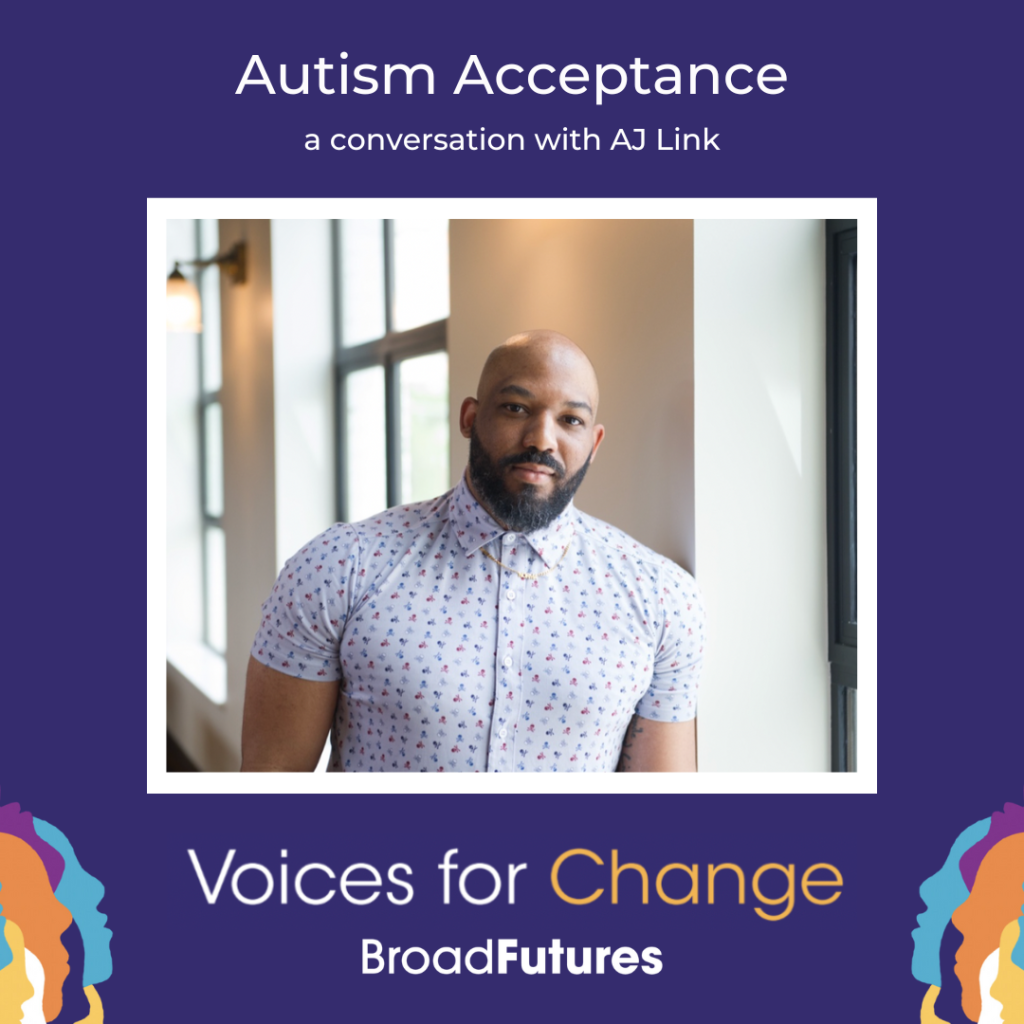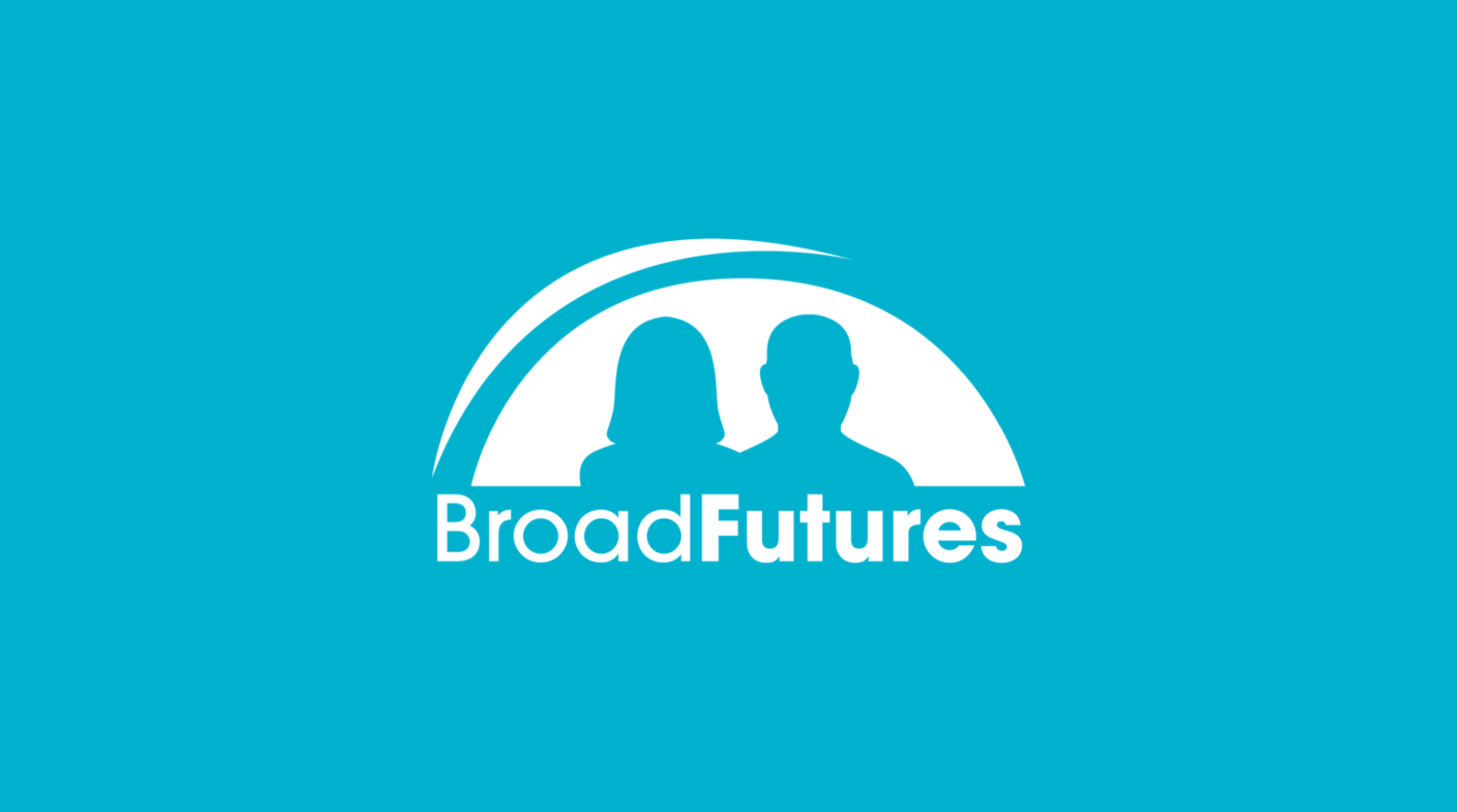
About AJ Link
AJ Link (he/him) is openly autistic. He received his JD from The George Washington University Law School and his LL.M in Space Law at the University of Mississippi School of Law. AJ serves as a research director for the Jus Ad Astra project, the Accessibility Team Lead for AstroAccess, the Space Law and Policy Chair for Black in Astro, and a cofounder of the Palestine Space Institute. He is the founding president of the National Disabled Law Students Association and the National Disabled Legal Professionals Association. AJ also works as a policy analyst for the Autistic Self Advocacy Network and is a fellow at For All Moonkind’s Ethics Institute.
AJ shared with us what autism acceptance means to him and how he built a career around neurodiversity and disability advocacy. Read some of the highlights from the conversation below.
Interview with AJ Link
BF: This year, BroadFutures is highlighting different voices for change within the neurodiverse community. Our focus for April is Autism Acceptance and learning more from self advocates like yourself. Can you talk more about what Autism Acceptance means to you and what this has looked like in your life?
AL: I think Autism Acceptance is going beyond mere acknowledgement and awareness and moving towards building a more inclusive and accessible world for autistic people, and really all people with intellectual and developmental disabilities, and all neurodivergent folks.
So, the acceptance part comes in making sure that people aren’t too judgmental when they meet individuals who think differently than them or process things differently. It’s about being really open-minded about the different ways that brains can exist.
BF: What was your pathway to finding a sense of belonging within the autistic community?
AL: I think for me, as an adult who didn’t find out I was autistic until I was an adult, one of the ways that I found community was meeting other autistic people, making friends with openly autistic people, and learning more about the autistic community, as someone who grew up outside of the community because I didn’t know I was autistic.
I didn’t really have those ties to the community until I started doing autistic advocacy and meeting more autistic people and being able to be around them, communicate with them, and become friends with them.
BF: In many ways, your professional career focuses have been around neurodiversity advocacy. For those who aren’t familiar with your work, you’re the President of the National Disabled Legal Professionals Association and also the Policy Analyst at the Autistic Self-Advocacy Network. Why was it important for you to highlight neurodiversity in your professional career?
AL: I don’t know that it was important. It was just where I was doing the most work in advocacy and where my path took me. When I was in school, I did a lot of advocacy for other students and that looked like doing on-campus advocacy, off-campus advocacy, [and] advocacy around the country. So, I don’t know that I intentionally picked [neurodiversity as a focus area] it’s just that I kept doing advocacy work and that led to more work and more opportunities in the advocacy space. And I’ve just continued to do that work.
BF: You mentioned that even when you were in college you have always acted as an advocate for others. How have you advocated for yourself?
AL: Oh, that’s really interesting. I honestly don’t have to do that much self-advocacy in the workplace or my professional life now, mostly because I’m pretty open about the things I need in order to work best in an environment. I was always focused on communicating what I needed in order to thrive in an environment. So, whether that was different working hours or a quiet working space or lunch at a different time or by myself. For me, it wasn’t so much thinking about it as being a self advocate and advocating for myself, more so protecting myself and being able to communicate my needs in order to be the best person in whatever environment I was in.
BF: What is one way that you practice self-acceptance in your life?
AL: I really try not to force myself into situations I know I won’t like, or have expectations of myself that I [should] do things like other people do or how society says they have to be done. It’s not so much that I struggle to accept myself; I fully accept myself. I think the tension in my life is getting other people to accept that I know who I want to be. I know what I want to do and I’m okay with the consequences. I’m okay with it being different from the norm.
BF: Is there anything that you wish people knew more about autism?
AL: It’s really complicated and multifaceted and everyone’s experience being autistic and people’s relationship to autism is different. There are people who have different support needs, not everyone who’s autistic has the same support needs or goes about life in the same way.
And it’s really the diversity of human experience just like any other identity. I wish more people understood that it’s okay to not fully understand what it means for a singular individual to be autistic, but rather be accepting of the multitude of experiences that come with being autistic.
BF: Can you name one thing that you love about being autistic?
AL: I think the ability to be really certain about what I want. I’ve always been that way. I didn’t always understand or connect it to being autistic, but for me, it’s great being able to just say, “I like this” or “I don’t like this” and not have to debate with myself [or try] to convince myself to like or dislike things. For me, I feel like that’s amazing. I feel really fortunate because I know that not everyone has that opportunity or that ability.
BF: Is there any piece of advice that you would give to autistic young professionals just starting out on their careers?
AL: Don’t be afraid to be yourself. I know that a lot of times the world says you have to be a certain way, or do things a certain way, or be a specific type of person, but there’s a lot of reward in moving through the world as your unique self without apology. Sometimes it’s difficult and frustrating and sometimes there are negative consequences to that, but overall, I would say it’s worthwhile and fulfilling to not compromise who you are to try to fit in with the rest of the world.
BF: Thank you so much for sharing your story and all of your insights with us, AJ!















